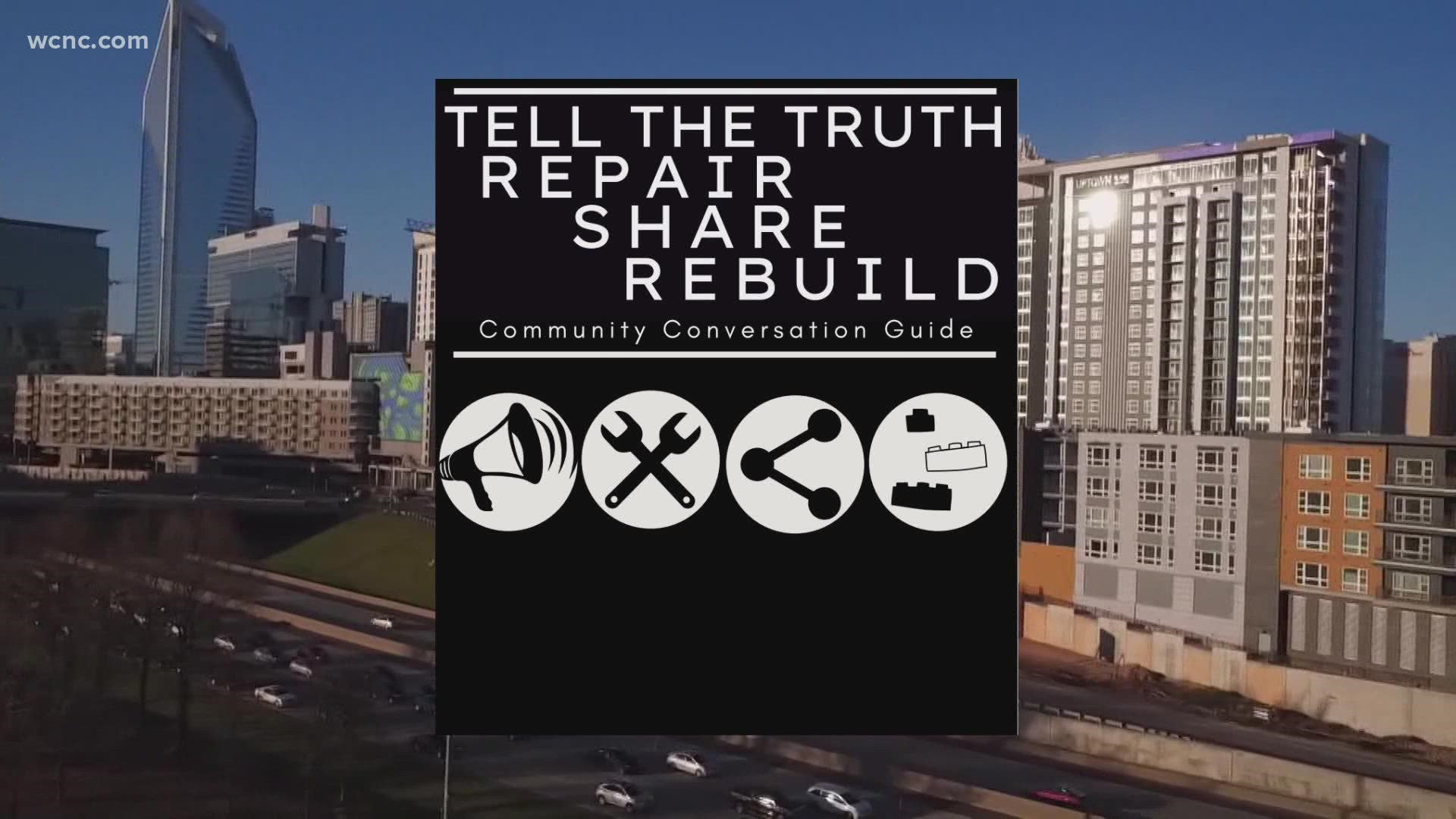CHARLOTTE, N.C. — The recently-formed Coalition for Truth and Reconciliation released a report on Friday, presenting the roots of systemic racism in Mecklenburg County since 1868.
"The time is now," Reverend Janet Garner-Mullins, chair of the Coalition for Truth and Reconciliation, said. "I mean, we can talk all day. But we need to put some feet to those words and action."
Rabbi Judy Schindler, director of Stan Greenspon Holocaust and Social Justice Education Center at Queens University of Charlotte, suggested using the report as a starting point.
"Let's read this together," Schindler said. "We have a beautiful conversation guide to go alongside. We want you to read it and we want you to ask yourself, 'What are our next steps? How do we right 154 years of systemic wrongs?'"
One member of the Coalition for Truth and Reconciliation, Sevone Rhynes, pointed to a gap of wealth in the Queen City.
"We all recognize that there are actually what we call two Charlottes," Rhynes said. "There's a Charlotte that has, and there's a Charlotte that has not. ... Those neighborhoods are touted as being the worst in Charlotte but about 80% of those are now some of the most heavily gentrified."
Organizers said the first step to finding solutions is to read the 40-page document. Researchers looked into historical evidence of four key sectors -- politics, law enforcement, education and infrastructure. An accompanying conversation guide also includes a playlist for each theme and serves as a conversation starter.
"We know the way that we think of complex issues, is complex," Reverend Helms Jarrell, the organizing pastor of Beloved Community Charlotte, said. "And we need to include art and music as a part of that, so we can come to a more robust and full solution for repairing the harm."
"We just don't want to not do anything," Shamaiye Haynes, the community cultivator at QC Family Tree, said. "We want to start to really look at the facts, look at what the data says and then challenge the powers that be to act on what we already know."
Contact Jane Monreal at jmonreal@wcnc.com and follow her on Facebook, Twitter and Instagram.

